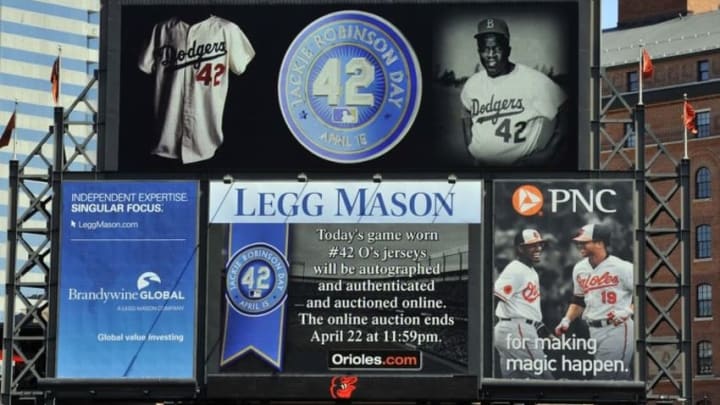It had been over sixty years since an African American played in the major leagues. On this day in 1947, Jackie Robinson shattered the color barrier in baseball for good.
Since the end of the 1884 season, Major League Baseball was segregated. Spearheaded by the efforts of players like Cap Anson, baseball banned the signing of black players. The Negro Leagues came into being, and there were occasional exhibition games between those teams and Major League squads, but those were few and far between.
That would change forever in 1947. After he spent a year with the Montreal Royals, the Brooklyn Dodgers and Branch Rickey signed Jackie Robinson to a major league contract on April 10th. It would be on this day where Robinson, playing first base, would make his debut, breaking the color barrier.
More from MLB History
- Analyzing the Boston Red Sox trade for Dave Henderson and Spike Owen
- 5 MLB players who are human cheat codes for Immaculate Grid
- Good MLB players in different uniforms: A look at a random year and two random teams
- Sticky fingers: The pine tar incident, New York Yankees, Kansas City Royals and Gaylord Perry
- Chicago Cubs scoring 36 runs in two games? That’s nothing compared to this historic mark
It was not always easy. Robinson had to endure the racial taunts of opposing fans and players, with people like Ben Chapman forever tarnishing their legacy due to their vitriolic reaction to his presence. Yet, there were others, like Pee Wee Reese, who literally welcomed Robinson to the majors with open arms, while Commissioner Happy Chandler made certain that he got a fair chance to prove that African Americans could play in the Majors.
His debut did not go as well as he likely would have wanted, but Robinson still performed well. While he was 0-5 at the plate, Robins was flawless at his new position, handling all eleven chances without an error. He also scored the winning run in the Dodgers 5-3 victory over the Boston Braves.
As Robinson proved he belonged, the floodgates began to open. Larry Doby became the first black player in the American League less than three months later, and other teams quickly began to sign the top players from the Negro Leagues. Robinson’s contributions to baseball, and in the civil rights struggles in the middle of the 1900’s, eventually earned him a spot in Cooperstown and the unique honor of having his number retired throughout baseball, as Mariano Rivera was the final player to wear the number, having been grandfathered in.
Next: Expos play first regular season game in Canada
Jackie Robinson had a lot riding on his shoulders on this day in 1947, as his performance with the Dodgers would end up determining the fate of African American players going forward. As it turned out, Robinson truly delivered, shattering that color barrier forever.
